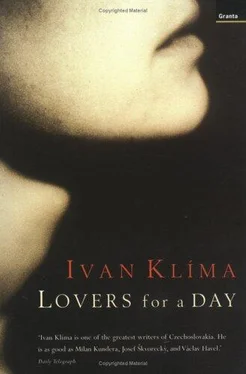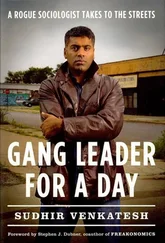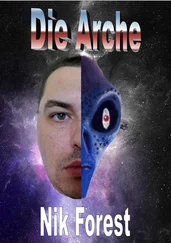'No!'
'There's no such ticket,' the booking-office lady declared. 'You can have one for seven-eighty or eight-forty.'
She passed him two cardboard tickets. 'Hurry up. Your train leaves in four minutes.'
2
The carriage swayed gently and the night flowed past the window. There were four workmen in the compartment, three playing cards while the fourth sat opposite her, watching her in silence and smoking.
She couldn't remember the last time she'd taken the train. Her recent boyfriends had always had cars. And always Spartaks. She'd liked the last one most of all — two-tone, red with a black roof. But apart from that he was the same as the rest, the same talk; a drive to the dam every Saturday — a divorcee. She wasn't even really sure why she went with them. All those cabins on steep slopes. They were stifling hot inside, long into the night. But she had to survive the weekends somehow. She always managed to find someone. If only he hadn't gone on the way he had, though. He was just an ordinary lawyer but with a passion for lyrical verse. Sweetheart, you have eyes like a goldfish and a head like a Madonna, I'd like to take you away with me — or just a little bit of you to put under the glass of my desktop. Those words would come back to her even in the dead of night when all was silent and she was trying desperately to get to sleep. The words would choke her and she would long for the morning to come. She longed for it so much that she would start to whisper out loud, 'Dear God, if only it was morning!'
This student she was travelling with had been telling her stories about some crazy professor or other while the workman
kept on looking at her. She looked at him too, but not at his face: he had a thin sinewy neck like a strange landscape of rounded slopes and hollows. In one of the hollows lay a small seashell on a fine chain.
She found it odd that he should wear such a trifle. Perhaps he had been at the seaside and wanted people to know it.
He saw she was watching him and smiled slightly. She smiled too. Just as long as he doesn't start to talk, she thought. She didn't want to hear any talk. About herself, or him or about life.
The train would stop and set off again and there would be the tramp of feet in the corridor. From time to time she could not help laughing at the stories. The workman stared at her intently: perhaps he had stood like that on the seashore, motionlessly scanning the waves, maybe that's why he brought back that seashell, because he loved the sea and wanted to remember it. For a moment she glanced into his calm eyes and she realized that in fact he was unaware of her, he was just staring, looking at the sea or his daughter or some long lost object which he could see only through her.
She smiled at him again. Maybe it wasn't even a smile but an expression of satisfaction.
The train started to brake. The workmen got up and the one opposite her put on his beret and nodded in her direction like an old acquaintance and she replied bye in a tone she kept reserved for her friends.
Now she was alone in the compartment except for that student. He sat opposite her with a sullen look on his face — like Belmondo. He had full lips too, and a straight nose. All he lacked was a bit of carnality.
'You haven't listened to a word I've been saying,' he said, trying to look exasperated. 'Did you know that guy?'
'Yes.' His eyes had none of that man's serenity. She began to feel regret. Whatever possessed me? Where am I going? I don't even know where we'll sleep. But in the end that doesn't matter. So long as there's running water. And he doesn't start talking drivel beforehand.
He's giving me a sheepish look. Why?
He's still only a boy, she realized. He must be younger than me. He's just putting it on. Maybe he'll still manage to like me, it occurred to her. But what's the point, she rebuked herself. Why start all over again? It's of no importance. Nothing's important really. So long as it's nice, a bit nice, at least. From beneath half-closed eyelids she could make out yellowish lights passing the window. 'Come on,' she heard him say. 'We have to get off here.'
It was a small station. Four lamps and beneath them tubs of pelargoniums and a sleepy stationmaster.
'Do you know this place?'
'Not in the slightest.'
They followed the other people along a beaten path in the dark and arrived at a number of lights, one of which belonged to a pub.
'Aren't you going to invite me to dinner?' she asked.
'Naturally' he said. But he stood outside the door with a look of despair. Finally she recalled how he had tipped out his last coins at the booking office. She reached into her handbag, took out a small purse and handed it to him.
There were just three foresters sitting in the bar-room. And a black hunting dog. The landlord squatted at their table. They seemed to have been drinking together; now they were all staring at her. 'Bloody hell,' one of them said under his breath.
Four sausages and bread. They sat at a corner table covered in oil-cloth. Above their heads a full-antlered rutting stag on the banks of a blue river.
The foresters raised their voices: '. . he was belting along with his gob right near the ground when all of a sudden he stops dead in his tracks and his hair's all standing up on end, and I couldn't get him to move an inch. .'
She knew for certain that she had heard the very same thing before, in this exact pub — amazingly, here too everything repeated itself, those three foresters and the black dog. She knew that the dog had come across the tracks of a raging wild boar. When had she heard it, though? It must have been a long time ago. Yes, she remembered now, it was when her father was still alive, so it must have been during the war or the first year after it. They were walking along a track, though she couldn't recall a thing about it. Then in the evening they reached this pub and three foresters were sitting just by the door with a dog and telling the story of the tusker.
It's very odd, she thought, that they should still be sitting here, that they haven't grown tired of the story yet. On the other hand, don't we all go on listening to the same handful of stories, over and over again?
The landlord placed plates in front of them.
They ate in silence. Suddenly he said, 'Something sad happened to you, didn't it?'
'Yes,' she said. 'I met you,' and she burst out laughing.
'And what about him?'
'Who?'
'You know who.'
'Ah. .' She had completely forgotten him until that moment. As almost always happened when she wasn't actually
with him. No one had ever been so close to her that she would want to think about them all the time.
'Do you love him?'
She shrugged.
'But you must know!'
'Stop that sort of talk! At least over dinner.'
One of the foresters came over to them with three small glasses. He was still young: a ruddy face and cunning eyes. 'How about a toast? To the beauty of this young lady!' He was unable to take his eyes off the bronze coin on the chain around her neck.
He had come over that time too, she recalled. And forced me to drink. Then everyone had laughed. I expect I made a face.
I was five at the time, she realized in alarm. Why had he done it? But she was sure she knew why he came.
'So get it down you,' the forester said irritably, 'or else I'll shoot you in the night. You and that boy. Through the door.'
Laughter came from the other table.
She knew he had come precisely for that laughter, and also so he could get a look at her and have a better idea of everything that was going to happen when he would no longer be able to see.
She stood and took the glass and parting her lips slightly, drained its contents. She detested those final moments: a key on a heavy metal ring; leaving the bar with strangers' eyes on her back. 'Thank you,' she said and smiled at the forester. 'Maybe I'll pay you back some time.'
Читать дальше












